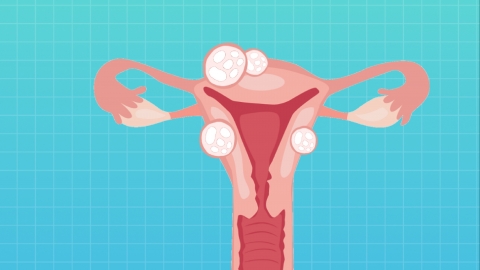What are the symptoms of uterine fibroids?
Generally, the symptoms of uterine fibroids mainly relate to the size, number, and location of the fibroids. Common symptoms include menstrual abnormalities, abdominal masses, increased vaginal discharge, pressure symptoms, and lower abdominal heaviness or discomfort. Detailed explanations are as follows:

1. Menstrual abnormalities: When fibroids interfere with uterine contractions or increase the surface area of the endometrium, menstrual bleeding may become heavier and periods longer. Some patients may also experience shortened menstrual cycles and blood clots in the menstrual flow, which over time can lead to symptoms of anemia.
2. Abdominal mass: As fibroids grow and the uterus enlarges to the size equivalent to a 3-month pregnancy, patients may feel a firm, hard mass in the lower abdomen. This mass is usually located centrally in the lower abdomen, has limited mobility, and is more easily palpable when the bladder is full in the morning.
3. Increased vaginal discharge: Intramural fibroids can increase the surface area of the uterine cavity and stimulate increased secretion from endometrial glands, leading to increased vaginal discharge (increased vaginal discharge). When submucosal fibroids prolapse into the vagina, the surface may become infected or necrotic, resulting in purulent discharge with an odor.
4. Pressure symptoms: Depending on their location, fibroids can cause different pressure-related symptoms. For example, anterior wall fibroids pressing on the bladder can cause frequent or urgent urination; posterior wall fibroids pressing on the rectum may lead to difficulty passing stool or a feeling of incomplete evacuation; broad ligament fibroids pressing on the ureters may cause back pain.
5. Lower abdominal heaviness: Larger fibroids may cause a sensation of heaviness or dull pain in the lower abdomen, particularly noticeable after physical exertion, prolonged standing, or during menstruation. Some patients may also experience low back pain, which may improve with rest.
To maintain reproductive health, women are advised to undergo regular gynecological examinations and pay attention to any abnormal changes in their bodies. Maintaining a regular lifestyle, avoiding excessive fatigue, and following a balanced diet can help reduce discomfort associated with fibroids.




